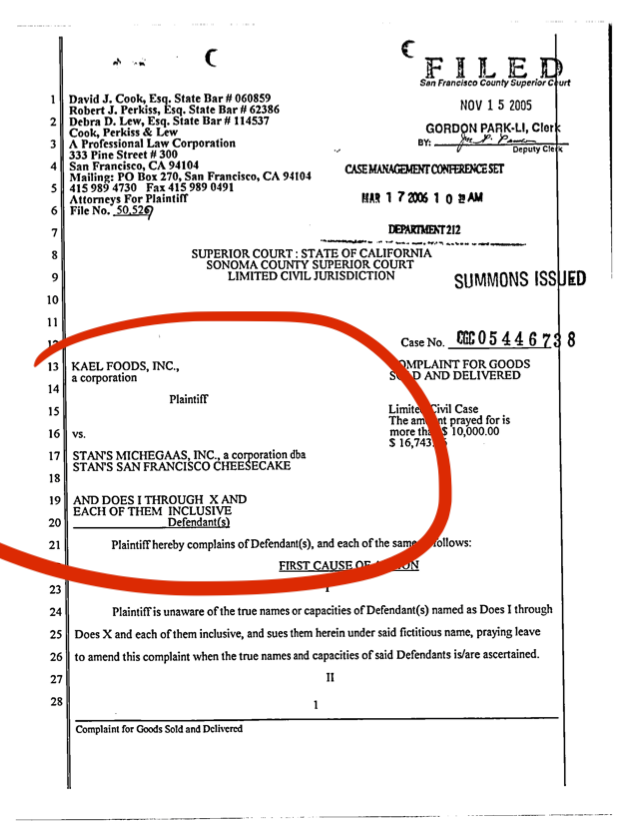First, one quick bit of terminology. The top of the front page of a summons and of a legal complaint (which also usually appears at the top of the front page of every other document filed in a case, although sometimes in abbreviated form) in a civil lawsuit is called the caption of the case.
Second, it doesn't sound to me like the business is "fictitious". If it truly didn't exist, you wouldn't be suing it, because you could never serve anyone associated with it with process and couldn't collect or enforce a judgment against anyone if you won the lawsuit.
Instead, it is fair to assume that there is a real business that someone or some group of people conduct business under that has a certain name, which isn't registered with the Secretary of State or other appropriate official in the state in which you are bringing suit, or in any other state known to you.
Suppose that that name under which business was conducted by this firm was " S.H. LONG BANANA".
You could sue "S.H. LONG BANANA, a business doing business in California that is not registered with the Secretary of State in the State of California." or simply "S.H. LONG BANANA".
This would be agnostic over whether it is a sole proprietorship operating under a trade name not registered in California, a general partnership, an unregistered trust doing business under an unregistered trade name, or an unincorporated nonprofit association, or formally formed entity registered in another state that is doing business in California without authorization to do so.
An unregistered business owned and conducted by one person is, by default, a sole proprietorship unless some other business form is registered, or there is a trust conducting business through its trustee.
A group of two or more people who conduct a business for profit that is not registered is by default a general partnership.
A group of two or more people who conduct the affairs of an unregistered organizations not for profit, are by default an unincorporated association.
Also, your inability to find a registration of an entity in the State of California means that an entity is not authorized to do business in the State of California, but does not not mean that it isn't registered as a corporation, limited liability company, non-profit corporation, cooperative, limited partnership association, limited partnership, limited liability partnership, limited liability limited partnership, or some other kind of entity (e.g. a GmbH under German law) in some other jurisdiction unknown to you.
It isn't that uncommon for a business from another state to fail to register with the state as a foreign business operating in the state. The main penalty for a foreign business not registering in a state is that it isn't allowed to bring lawsuits in that state's courts until it is registered.
If you know that one or more of the principals is James Wyn (a name I chose from a character in a work of fiction lest I defame anyone), you might instead, or in addition, sue "James Wyn, dba S.H. LONG BANNANA".
Usually, you are going to need at least one natural person to sue so that you can deliver a summons and complaint to that person.
If you aren't close to the statute of limitations, you may be able to sue that natural person who you can identify, get preliminary disclosures or discovery, and then amend your complaint to state the true defendants.
The Racketeering and Corrupt Organizations Act (RICO) also recognizes the possibility of bringing suit against a group of people who comprise a de facto criminal enterprise, and you could look at examples of how lawsuits brought under that statute (which authorizes private civil causes of action as well as criminal charges) in that manner are captioned.
